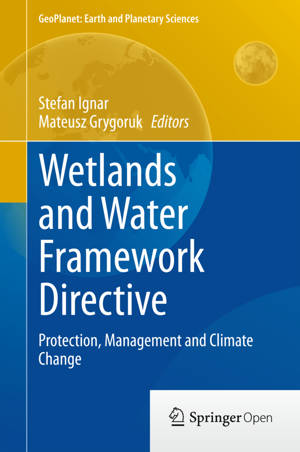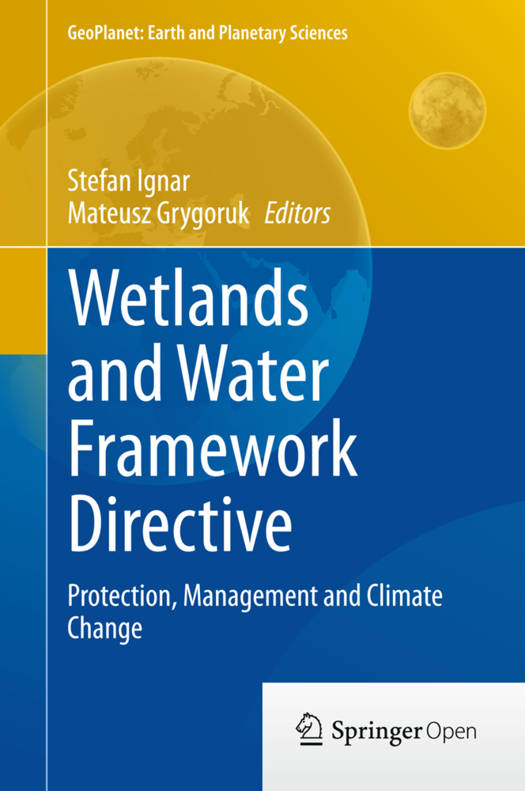
Door een staking bij bpost kan je online bestelling op dit moment iets langer onderweg zijn dan voorzien. Dringend iets nodig? Onze winkels ontvangen jou met open armen!
- Afhalen na 1 uur in een winkel met voorraad
- Gratis thuislevering in België vanaf € 30
- Ruim aanbod met 7 miljoen producten
Door een staking bij bpost kan je online bestelling op dit moment iets langer onderweg zijn dan voorzien. Dringend iets nodig? Onze winkels ontvangen jou met open armen!
- Afhalen na 1 uur in een winkel met voorraad
- Gratis thuislevering in België vanaf € 30
- Ruim aanbod met 7 miljoen producten
Zoeken
Wetlands and Water Framework Directive
Protection, Management and Climate Change
€ 52,95
+ 105 punten
Omschrijving
This book compares the lessons learned from a wetland-perspective approach to the changing climate and the requirements of the Water Framework Directive (WFD) with regard to environmental conservation. Examples from Germany and Poland are discussed due to the efficiency of their respective implementations of water conservation policies. Although the general scientific interest in specific issues such as wetlands, climate change, nature conservation and the WFD enjoy a well established position in international environmental research, these four elements are rarely considered together due to the complexity of the processes, biased scenarios of global change and subjective policy background. Major challenges involved in carrying out environmental conservation actions that assess the potential impacts of climate change and management plans on water bodies are identified. The results of this approach are addressed to practitioners in the field of adaptive management in a wetlands context.
Specificaties
Betrokkenen
- Uitgeverij:
Inhoud
- Aantal bladzijden:
- 103
- Taal:
- Engels
- Reeks:
Eigenschappen
- Productcode (EAN):
- 9783319137636
- Verschijningsdatum:
- 26/01/2015
- Uitvoering:
- Hardcover
- Formaat:
- Genaaid
- Afmetingen:
- 156 mm x 234 mm
- Gewicht:
- 340 g

Alleen bij Standaard Boekhandel
+ 105 punten op je klantenkaart van Standaard Boekhandel
Beoordelingen
We publiceren alleen reviews die voldoen aan de voorwaarden voor reviews. Bekijk onze voorwaarden voor reviews.










